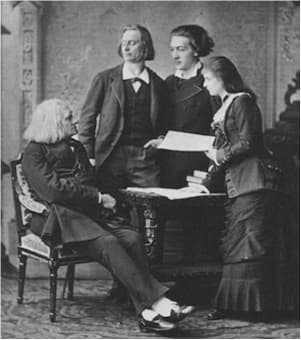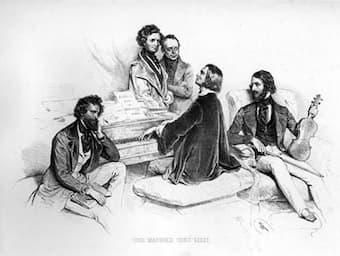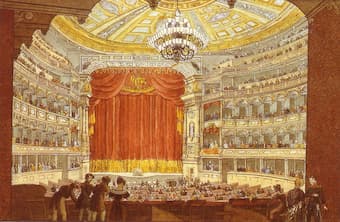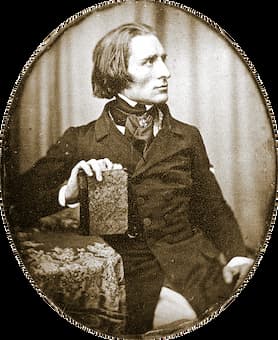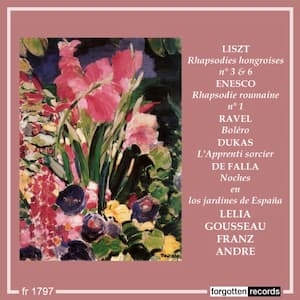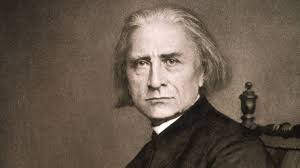Franz Liszt first met Hector Berlioz a few months after the July Revolution. He attended the first performance of Berlioz’s Symphonie fantastique in the company of the composer on 5 December 1830. Almost immediately, Liszt started work on his piano
Liszt
Franz Liszt was the greatest piano virtuoso of his time; possibly the greatest of all time! His sensational technique and captivating concert personality turned him into the ultimate rock star of the 19th century. However, this notoriety also created uncertainty,
Enjoying the shores of Lake Como with Marie d’Agoult in 1837, Franz Liszt (1811-1886) immersed himself in a close reading of Dante’s Divine Comedy. The idea of composing a symphony to Dante’s Divine Comedy, one that would combine music, poetry
Franz Liszt was born to Marie Anna Lager and Ádám Liszt on 22 October 1811. His father was a gifted amateur singer, pianist and cellist who took part in summer concerts at the Esterházy estates. He personally knew Joseph Haydn,
In 1839, Franz Liszt (1811-1886) returned to Hungary, which he had left in 1822 at age 11. In the new nationalism that was sweeping Europe, he was hailed as a true Hungarian champion. As part of his musical explorations of
In our current musical world, we can hear, literally, anything at anytime. Want a string quartet – The Kronos is on call. Want a piano recital – voilá, Lang Lang appears (if that’s who you want). A full orchestra can
It might not be a complete surprise, but Franz Liszt and Felix Mendelssohn really didn’t like each other! Mendelssohn first heard a Liszt performance at a concert in Paris in 1825. In his opinion “Liszt had many fingers but few
The problem for Liszt was how to expand the orchestral genre into something less confining than the symphony – 4 movements, alternating slow and fast, contrasting triple section. Sigh. It’s all so old. Ok, we have the concert overture, but

